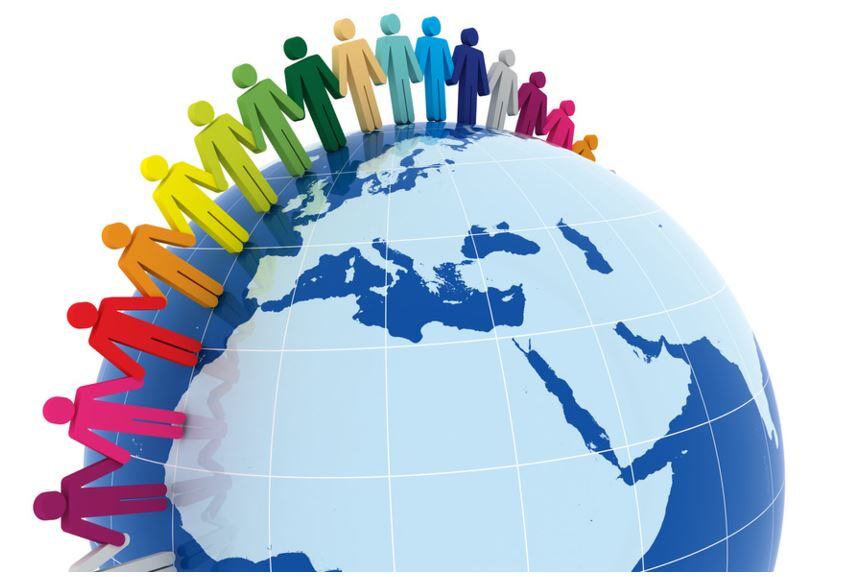
Working Effectively Across Cultures: USA & Germany
In global organizations, collaboration rarely fails because of technical skills. It breaks down because of ...

Table of Contents
It is crucial to recognize and appreciate the different cultures that coexist within our global community. Cultural diversity is a source of beauty, knowledge, and inspiration. It is disheartening to witness cultural practices and identities be reduced to costumes, perpetuating stereotypes and undermining the integrity of cultural traditions. That’s why it’s critical to discuss why culture is not a costume and the importance of cultural training in fostering awareness and respect, especially in the workplace.
The phenomenon of cultural appropriation occurs when members of a majority group adopt cultural elements of a minority group in an exploitative, disrespectful, or stereotypical way. It becomes particularly problematic when cultural symbols, garments, or practices are used for personal amusement, especially during holiday celebrations or theme parties. Most of us have witnessed questionable Halloween costumes or uncomfortable Cinco de Mayo parties complete with fake mustaches and sombreros.
Cultural appropriation is often seen in sports mascots and team names as well. You’ve likely heard of the Cleveland Indians, Washington Redskins, Kansas City Chiefs, Atlanta Braves, and the Chicago Blackhawks, to name a few. The Washington Redskins recently changed their name to the Washington Commanders, as Native American groups had long denounced the prior name as an ethnic slur and a derogatory reference to skin color.
According to Pew Research Center, 53% of Americans believe it’s generally unacceptable for a white person to use makeup to darken their skin for a Halloween costume, including 37% who say it’s never acceptable. About 34% say this is always or sometimes acceptable. THIRTY-FOUR PERCENT is a number I cannot get my head around.
In 2011, an organization at Ohio University, Students Teaching Against Racism in Society, formed the “My Culture is Not a Costume” campaign to bring awareness and education surrounding cultural appropriation and its harm. The Division of Diversity and Inclusion’s website for the campaign details some culturally inappropriate costumes that you may not be aware of.
It may seem harmless to dress up as a Native American for Halloween, but you’re not the target. It’s important to examine the implications and consequences of cultural appropriation to gain a deeper understanding of why it is essential to celebrate diversity in an inclusive, sensitive, and empowering way.
Cultural attire, artifacts, and practices are significant in a community. They often represent centuries of history, stories, and spiritual beliefs and have deep family ties. Reducing them to costumes can be seen as a mockery of cultural identity and can lead to feelings of marginalization and disrespect.
By treating cultural symbols as superficial dress-ups, stereotypes can be perpetuated and reinforced. This must be more accurate in explaining complex cultural narratives and undermining marginalized communities' struggles and achievements.
Cultural traditions often emerge from specific historical, social, and political contexts. Reducing them to mere costumes erases the significance of these factors, removing the authenticity of cultural experiences and traditions. It also ignores the possibly harmful history most of these cultural groups have experienced for centuries.
Speak to an Expert About Language or Culture Training
Cultural training is a valuable tool to raise awareness and prevent the depreciation of cultures. It promotes empathy, understanding, and respect, fostering an environment where diversity is celebrated rather than exploited. Here's how cultural training can benefit individuals and communities:
Cultural training provides an opportunity for education about different cultures, including their histories, customs, values, and practices. By gaining a deeper understanding, individuals can engage with cultures more respectfully and avoid appropriative behaviors.
Cultural training creates space for open discussions and exchanging ideas, facilitating intercultural communication. This promotes a sense of unity, encourages the sharing of perspectives, and builds bridges between communities.
By actively engaging in cultural training, individuals can amplify the voices of marginalized communities and challenge existing power imbalances. This helps foster a more inclusive society that embraces and values diverse cultural contributions.
Cultural training equips individuals with the tools to recognize and address cultural appropriation when they encounter it. This leads to more responsible behavior, encouraging individuals to engage with cultures respectfully and honor their boundaries.
Cultural appropriation diminishes the significance of diverse cultural practices, eroding the authenticity of traditions and perpetuating harmful stereotypes. By embracing cultural training, we can collectively foster awareness, understanding, and respect. By recognizing that culture is not a costume, we take a significant step toward building a society that cherishes and values cultural diversity.
If you want to learn more about how cultural training can help reduce cultural appropriation, we’d love to show you.
This blog post was written by Megan Tully, Marketing Manager.

In global organizations, collaboration rarely fails because of technical skills. It breaks down because of ...

Navigating the complexities of international business requires more than just technical expertise and a strong ...

Cross-Cultural Communication In today's globalized world, international communication isn't just for expats. Even if ...
Please fill out the form below for more information or to schedule a consultation.